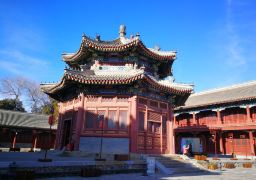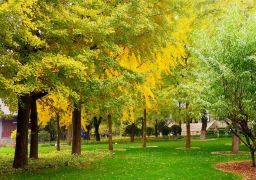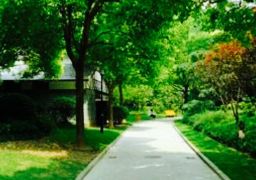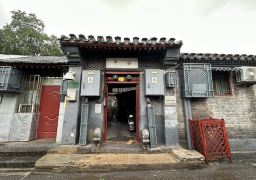The Chongqing Anti-Japanese War Drama Museum is a specialized museum themed around the Anti-Japanese War drama, carrying the reminiscence and memory of several generations of Chinese drama artists on the golden age of Chinese drama development. ‘The great Anti-Japanese War created the great Chinese Anti-Japanese War drama,’ in the grand scroll of Anti-Japanese War drama, the Anti-Japanese War drama movement centered in Chongqing, as the rear base, made a tremendous contribution to inspiring, mobilizing, uniting, and sustaining the war effort with its grand scale, profound heritage, and high artistic achievements.
To inherit the great spirit of Anti-Japanese War drama, the Chongqing Municipal Committee for Cultural and Tourism Development (Chongqing Cultural Relics Bureau) officially approved the establishment of the Chongqing Anti-Japanese War Drama Museum in 2018.Located in Zhongshan Yi Road, Yuzhong District, Chongqing, the museum was built by the Chongqing Drama Theater and consists of three parts: the Anti-Japanese War Drama Hall, known as the sanctuary of Chinese drama, the golden age of Chinese drama – the history exhibition of Chongqing Anti-Japanese War drama, and the performance and experience area (under construction), covering an area of about 3000 square meters.
Among them, the Anti-Japanese War Drama Hall, completed in 1941 with a usable area of 1463.44 square meters, was the main venue for drama performances during the Anti-Japanese War period and the rehearsal, performance, and office location for the Chongqing Drama Theater after liberation. It is now a cultural relics protection unit at the municipal level in Chongqing and one of the professional drama theaters with historical significance still existing in Chongqing; the golden age of Chinese drama – the history exhibition of Chongqing Anti-Japanese War drama, with a total usable area of 862. 29 square meters, is divided into eight units including preface, overview of Anti-Japanese War drama, Anti-Japanese War drama groups, Anti-Japanese War drama celebrities, famous Anti-Japanese War dramas, historical achievements of Anti-Japanese War drama, inheritance of Anti-Japanese War drama spirit, and Anti-Japanese War drama viewing experience. Through rich text, images, and dioramas, it systematically displays the historical features, contributions, and artistic achievements of Chongqing Anti-Japanese War drama; the performance and experience area (under construction) includes resident performances at the Anti-Japanese War Drama Hall, audience leisure experience, cultural and creative product development, and research on Anti-Japanese War drama, allowing audiences to immerse themselves in the actual environment of Anti-Japanese War drama creation and performance, obtaining a unique historical, cultural, and dramatic experience.
The Anti-Japanese War Drama Hall is a professional drama theater known as the sanctuary of Chinese drama and has always been an important witness to the development of Chinese drama. After deliberation, it was decided to convert the former Second Studio of the China Film Studio, located on the roadside of Zhongshan Yi Road, into a theater. The renovation project was specifically undertaken by Huo Danni, the wife of director Shi Dongshan.









